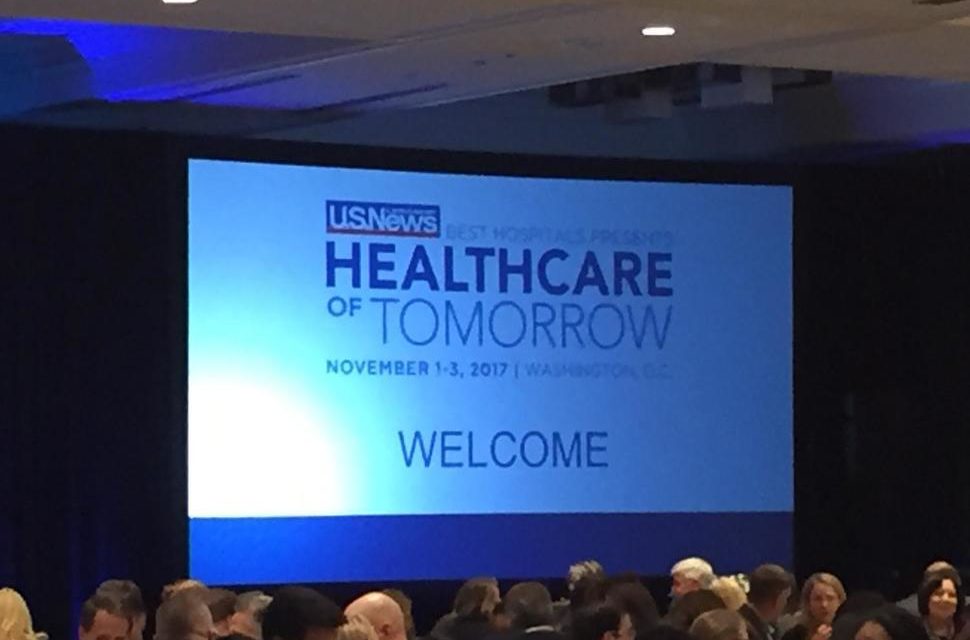The U.S. News Healthcare of Tomorrow conference was held in Washington Nov. 1-3.(LYLAH ALPHONSE FOR USN&WR)
“AGE 3 IS MIDDLE AGE when it comes to brain development.” That quotation kicked off a Thursday afternoon panel at U.S. News and World Report’s annual Healthcare of Tomorrow in conference in Washington. The session highlighted the benefits of early mental health care and innovations to provide better access.
Moderated by Alfiee Breland-Noble, an associate professor in the department of psychiatry at Georgetown University Medical Center, the session raised a series of issues:
- Kids at risk for behavioral, developmental or mental health issues – and their families – benefit from professional intervention as soon as possible.
- Excellent treatment makes a lifelong difference for kids with conditions like autism or mood and anxiety disorders.
- Severe shortages of mental health providers exist nationwide – so access to care is sorely lacking.
- By delivering mental health care in innovative ways, access improves and kids do better.
Rahil Briggs, director of pediatric behavioral health services at Montefiore Health System in New York City, talked about the power of prevention. Fifty percent of mental health diagnoses result in symptoms before age 14, she said – yet only about in one in five kids receives care from the specialty mental health system. But almost all kids see a pediatrician, she pointed out, and that’s an opportunity.
“Families really trust their pediatricians with their important information,” Briggs said. That’s where Montefiore’s Healthy Steps programs can comes in, she said, by introducing psychologists or other mental health experts into primary care practices, providing a non-stigmatized way to seek and offer care. The whole family is considered a patient unit, which means even parents with depression can be treated right there at the pediatric practice.
Providing more intensive services for families at highest risk for toxic stress, and working with mothers even before babies are born, pays off for kids, Briggs said. Better mental and even physical health outcomes like reduced obesity are the result.
Mental health problems are common in kids, yet the average delay between onset of symptoms and treatment approaches 10 years, said panelist Dr. Sy Saeed, a professor and chairman of the department of psychiatry and behavioral medicine at the Brody School of Medicine at East Carolina University.
The impact of treatment gaps ranges from greater odd of dropping out of school to a higher risk of suicide, Saeed said. With the psychiatric workforce spread thin, telepsychiatry extends clinicians’ reach.
Telepsychiatry uses two-way, real-time interactive audio and video between a consulting provider and individual patients at a referring site. The North Carolina Statewide Telepsychiatry program encompasses 62 hospitals, more than half of those in the state, Saeed said. So far, more than 4,000 children and adolescents have been seen. “It’s still all about relationships, not technology,” he emphasized.

